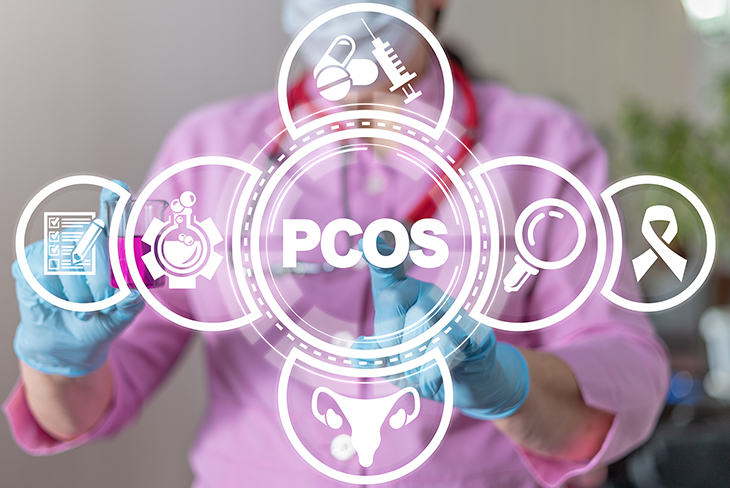Get informed about polycystic ovary syndrome

It’s a leading cause of female infertility and arguably the most common endocrine disorder in females, but it often goes undiagnosed. Here’s what you need to know.
What is polycystic ovary syndrome?
Women with polycystic ovary syndrome (PCOS) have a hormonal imbalance that disrupts normal reproductive processes as well as overall health and appearance. According to an article in the South African Journal of Obstetrics and Gynaecology, the condition affects 15–20% of women in their childbearing years and is also linked to 40% of female infertility cases in South Africa. The numbers may be much higher, but the condition often goes undiagnosed until a woman tries unsuccessfully to become pregnant.
What causes PCOS?
PCOS doesn’t discriminate. It affects all races and ethnicities, but you are at a higher risk if you are overweight or obese. Risk factors also increase considerably if a mother, sister or aunt has had PCOS, which means it could have a genetic link. There are two key factors that cause changes in the body:
High levels of androgens (male hormones)
All women produce small amounts of male hormones. Ovaries secrete oestrogen, progesterone and testosterone (a male androgen hormone produced in lower levels in females). When the level of testosterone increases beyond what is normal, it may result in ovarian problems: ovaries do not release an egg during each menstrual cycle, this results in multiple cysts forming in the ovaries, which could result in infertility. Other physiological manifestations are excessive growth of body hair and acne.
High levels of insulin
Insulin is secreted by the pancreas and allows the energy from the food you eat to be stored in cells. When the body does not respond normally to the insulin, levels rise and insulin resistance occurs. This is characterised by weight gain (around the belly), absence of menstrual periods, skin tags and the risk of hypertension.
PCOS symptoms explained
It’s important to note that symptoms and signs vary from person to person and are not necessarily all present in one patient. They often develop around the time of the first menstrual period or later as a result of significant weight gain. These are some of the common signs and symptoms:
- Irregular menstrual periods or no periods
- Decreased or complete lack of ovulation
- Ovarian cyst (as a result of the eggs not being released)
- Obesity
- Persistent acne and oily skin from excessive sebum production
- Abnormal hair growth on face, arms, chest and abdomen
- Depression and anxiety as a result of poor self-image
PCOS diagnosis and treatment
A qualified medical professional will confirm the diagnosis by reviewing the patient’s medical history, conducting a physical exam, which could include an ultrasound of the ovaries, and possibly a blood test to determine hormone levels.
There is no PCOS cure and the treatment and management of the condition depends on what the patient would like to achieve. Women who want to become pregnant would need to see a fertility specialist, who could recommend infertility medication to regulate periods and ensure ovulation. Many of the other physical manifestations, such as acne, excessive hair growth and obesity, need to be treated by individual specialists.
Since many women with PCOS are insulin-resistant, diet is important in managing the condition. A PCOS diet is structured to maintain a healthy weight, promote stable insulin levels and to help boost mood. Foods that are high in saturated fat and sugar or are highly processed are discouraged. While there is no formal diet, an eating plan should include:
- Low-GI foods, which keep insulin levels stable
- Fatty fish, like salmon and sardines
- Fresh fruit and vegetables
- Wholegrains
- Low-fat dairy
The information is shared on condition that readers will make their own determination, including seeking advice from a healthcare professional. E&OE. Life Healthcare Group Ltd does not accept any responsibility for any loss or damage suffered by the reader as a result of the information provided.

